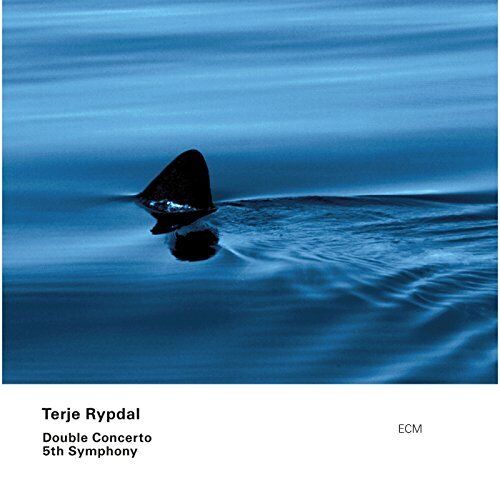Logowanie
Dziś nikt już tak genialnie nie jazzuje!
Bobby Hutcherson, Joe Sample
San Francisco
SHM-CD/SACD - NOWY FORMAT - DŻWIĘK TAK CZYSTY, JAK Z CZASU WIELKIEGO WYBUCHU!
Wayne Shorter, Freddie Hubbard, Herbie Hancock, Ron Carter, Elvin Jones
Speak no evil
UHQCD - dotknij Oryginału - MQA (Master Quality Authenticated)
Chesky! Niezmiennie perfekcyjny
Winylowy niezbędnik
ClearAudio
Double Matrix Professional - Sonic
najbardziej inteligentna i skuteczna pralka do płyt winylowych wszelkiego typu - całkowicie automatyczna
Terje Rypdal
Double Concerto / Fifth Symphony
Rypdal's "Double Concerto" is played here by one of Latvia's leading orchestras, fronted by two electric guitarists: Terje himself and Ronni Le Tekro from hard rock band TNT. It's an enjoyable, playful work, with bright melodies and guitar virtuosity foregrounded. The "Fifth Symphony", epic in its sweep, is distinguished by Rypdal's fine feeling for orchestral colour and fresh sonorities, and beara closer relationship to Terje's other orchestral recordings on ECM, such as "Undisonus" and "QED". Rypdal, though, is too idiosyncratic a musician, and his influences are too unruly and disparate, for him ever to fit comfortably into any one club for too long. As influences on his orchestral writing he cites Mahler, Grieg, Debussy, Ligeti, Stockhausen, Rolf Wallin, Finn Mortensen, and Arne Nordheim, but when he plugs his Fender guitar into his Marshall amp an altogether different set of role models hove into view, as allegiances to Jeff Beck, Jimi Hendrix and Steve Winwood – and others of the blues-rock pantheon of the 60s - become paramount. At a further remove, there’s also a third set of icons in the jazz world who have reinforced certain improvisational ideas – including guitarists Charlie Christian, Wes Montgomery, Kenny Burrell and Charlie Byrd. For more than 35 years, Rypdal, faithful to all his enthusiasms, has gone his own way, at times closer to one idiom or another, never really belonging anywhere. He has spent his life trying to synthesize or reconcile musical elements that most players would consider mutually and permanently hostile . His Double Concerto is a further attempt at bridge building. Into his orchestral sound-world he imports, for the first time on an ECM disc, a second electric guitarist. Fellow Norwegian Ronni Le Tekro is Rypdal’s partner here, hard-rock leader/founder of the band TNT. Rypdal and Le Tekro have admired each other’s work for many years now: Terje declares himself “stunned” by what he calls Le Tekro’s “machine-gun technique and special harmonics.” The TNT guitarist, for his part, praises the originality and the “volcanic aspect” of Rypdal’s playing. In 1990, Terje wrote a large scale composition called “The Big Bang”, its explosive title its programme: it featured orchestra and female choir, oboe, clarinet, piccolo trumpet, trumpet, four cellos, percussion, two electric guitars, synthesizer and electric bass. Principal soloists were Palle Mikkelborg, Terje himself and Le Tekro. This was the first public collaboration. Two years later the Double Concerto for Two Electric Guitars and Symphony Orchestra was commissioned by the Trondheim Symphony, and Trondheim native Le Tekro was again the obvious choice as second guitarist. The premiere was on the 16th of April, 1993. In July 1994 it was played twice: with the Turkku Symphony Orchestra in Pori, Finland, and with the Trondheim Symphony once more at the Molde Festival in Norway. The following year it was played again in Switzerland, with the Basel Symphony Orchestra. By this point the guitarists were pooling their common enthusiasms, and they made a couple of rock records together in Norway - “Rypdal and Tekro” (1994) and “Rypdal/Tekro II” (1997) - respectively for RCA and Grappa, both of them well received in Scandinavia. The present recording took Rypdal and Tekro to the Baltic States. They were invited to Latvia where, it transpired, the Riga Festival Orchestra was now led by oboist and conductor Nordmunds Šne. A former pupil of Heinz Holliger’s, and now well-known for his international collaborations with Gidon Kremer, Mstitslav Rostropovich and numerous other world-class musicians, Šne was also an informed jazz listener and had followed ECM’s directions, and Rypdal’s music in particular, from the early 1970s. This turned out to be a considerable advantage. There was none of the gruelling synchronisation of time-sense so common when musicians of quite different disciplines come together. The conductor immediately felt the music’s pulse. Rypdal: “From the very first rehearsal I found it very easy to work with Nordmunds Šne. He seemed to know all the right tempo nuances, all the right fermatas and so on...” The Double Concerto extends familar Rypdalian modus operandi. It is melodically rich and it sets the soloists – in this case two of them – against highly textured ensemble writing. It’s also one of the most playful works in the Rypdal canon. Effects for the guitars in the opening movement include motoric revving that suggests the arrival of the biker gangs who followed Le Tekro’s TNT band around in the early days. The second movement has some of the yearning quality asssociated with “Whenever I Seem To Be Far Away”, the third has Rypdal and Le Tekro in full flood against raging orchestra, while the fourth finds congruity in guitar harmonics and the bells and chimes of the orchestra percussion section. Rypdal and Le Tekro bow out for the Fifth Symphony – a stark, and tautly focussed piece with powerful use of sound colour. It is played with passion and purposefulness by the Riga Festival Orchestra.


































